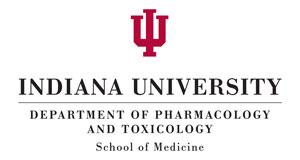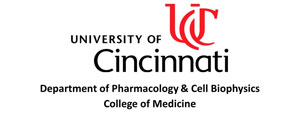Thanks to all our sponsors who help make the ASPET annual meeting at Experimental Biology a success.
If you are interested in becoming a sponsor, visit the Become a Sponsor page for more information.
Silver Sponsor
Merck

Today's Merck is a global health care leader working to help the world be well. Merck is known as MSD outside the United States and Canada. Through our prescription medicines, vaccines, biologic therapies and animal health products, we work with customers and operate in more than 140 countries to deliver innovative health solutions. We also demonstrate our commitment to increasing access to health care through far-reaching policies, programs and partnerships. For more information, visit www.merck.com and connect with us on Twitter, Facebook, YouTube and LinkedIn.
Bronze Sponsor
Mirna Therapeutics

Mirna is a clinical-stage biopharmaceutical company developing a broad pipeline of microRNA-based oncology therapeutics and is the first to establish clinical proof-of-concept for a microRNA replacement therapy for cancer. Mirna's lead product candidate, MRX34, a mimic of naturally occurring microRNA-34 (miR-34), is currently being studied in a Phase 1 clinical trial in patients with primary liver cancer, advanced solid tumors and hematological malignancies. miR-34 is one of the most widely published microRNAs and is considered a key regulator of multiple oncogenes across key oncogenic pathways, with the capacity to regulate more than 30 different oncogenes and repress the immune checkpoint signaling molecule PD-L1. The potential capacity to simultaneously affect multiple pathways and processes that are critical to cancer cell viability may make mimics of tumor suppressor microRNAs potent anti-cancer agents and less susceptible to drug resistance. Mirna plans to develop MRX34 as a monotherapy and in combination with other therapeutic modalities, such as targeted therapies and immuno-oncology agents. The company was founded in 2007 and is located in Austin, Texas.
Academic Partner Sponsors
Community for Open Antimicrobial Drug Discovery (CO-ADD)

The Community for Open Antimicrobial Drug Discovery (CO-ADD) is a not-for-profit open-access drug discovery initiative. We screen compounds from academic research groups from anywhere in the world for free against key bacterial ESKAPE pathogens, E. coli, K. pneumonia, A. baumannii, P. aeruginosa, S. aureus (MRSA) as well as the fungi C. neoformans and C. albicans. We aim to help researchers around the world to find new, diverse compounds to combat drug resistant bacteria, and make no claim on results or IP.. CO-ADD is funded by the Wellcome Trust and The University of Queensland. Send compounds for free antimicrobial screening at www.co-add.org
Drexel University Online

Online MS in Drug Discovery and Development
Discover. Evaluate. Engage.
Drexel University's online MS in Drug Discovery and Development program gives you a unique, career-focused opportunity to:
- Understand, evaluate and engage with the entire drug discovery and development process
- Learn from the best–faculty who are pharmaceutical and biotechnology senior-level executives
- Obtain the scientific and technical training necessary to succeed in the complex and multidisciplinary field of drug discovery
- Create a customized curriculum to meet individual goals
Learn more at Online.Drexel.edu/DrugDiscovery.
Indiana State University

The Department works towards a synergistic interaction between the clinical and basic sciences that prompts unexpected discoveries of causes and novel treatments for disease. We are nationally known for using the most current technologies to teach the current state of knowledge in pharmacology and toxicology to medical, graduate, and post-graduate students. We teach critical thinking and problem solving skills, and we also provide opportunities for students to excel in the laboratory and develop as life-long learners. Faculty participate in our Graduate Program which awards Ph.D. and M.S. (on a limited basis) degrees in Pharmacology or Toxicology. We also train students towards the M.D./Ph.D. degree. Our research incorporates molecular, cellular, and systems pharmacology and toxicology approaches, and cuts across the boundaries of traditional departments and disciplines. Our funded research in sensory function and pain, pathogen infection, neurodegeneration, ion channels, cancer biology, and drug abuse comprise just a few of our interests.
Michigan State University

The Ph.D. program primarily focuses on an original research project in the laboratory of a faculty member within the Department of Pharmacology and Toxicology or in other laboratories at MSU studying pharmacology or toxicology. This research is complemented with courses presenting the basic principles of medical biology, pharmacology and toxicology, and training in research and the scientific method. Students have the opportunity to reach their potential by pursuing research that is important to them. Students generally enter our Ph.D. program through the Biomolecular Sciences Gateway.
The MS online program trains students in molecular, cellular, and organ systems pharmacology and toxicology. It is designed for individuals who are seeking academic qualifications to facilitate advancement in their place of employment or to enhance their competitiveness for admission to other advanced degree programs. All courses are online to provide full opportunity for students regardless of geographic location, work schedules, or family responsibilities.
Oregon State University College of Pharmacy

The Oregon State University College of Pharmacy welcomes applications to the degree of Doctor of Philosophy (Ph.D.) in Pharmaceutical Sciences, which encompasses the disciplines of pharmaceutics, medicinal chemistry/natural products, and pharmacology. While stand-alone M.S. degrees are not offered, we do accept applications from students who, for funding reasons, must obtain an MS degree en route to a Ph.D. degree. Many of our faculty members have been recognized for teaching excellence, outstanding research and their professional activities. Research focus areas of our faculty include 1) the discovery and design of anti-cancer and anti-infective agents, as well as the investigation of potential drug targets and biological mechanisms of action, 2) the design and development of innovative drug dosage forms and nanotherapeutics, utilizing smart drug delivery systems, and 3) the mechanisms and consequences of drug interactions with living organisms.
University of Cincinnati

The Department of Pharmacology and Cell Biophysics, University of Cincinnati College of Medicine, offers a one-year, on-site, non-thesis MS degree program focused on basic pharmacology, drug discovery, and safety pharmacology.
The program prepares students for advanced academic training, to successfully enter higher degree programs (MD, PhD, DDS, PharmD, DVM, etc.), and for employment in the pharmaceutical industry, contract research organizations, or regulatory agencies. Lab experiences and teaching by industry experts are features of this program.
All of our past graduates to date are either employed or pursuing higher degrees.
Our next class runs from August 2016 thru May 2017. Online applications from domestic applicants will be accepted until 1 July 2016 or until the class is full.
Early applications are encouraged and international applicants should apply before 1 March.
UT Health Science Center

We engage in scientific discovery to elucidate biological processes, to explore the pathophysiological basis of disease and identify novel therapeutic strategies for restoring normal function.
We provide training focused on critical thinking to promote innovative basic research of recognized excellence, scholarship and integrity.
To this end, we foster creativity, collegiality, and leadership in the endeavor to create new knowledge about the sciences and to convey these discoveries to the scientific community and to the public.
As we examine the fundamental mechanisms that underlie cellular and systems level function and dysfunction and how drugs influence these systems, our ultimate goal is to better treat human disease.
Join us!